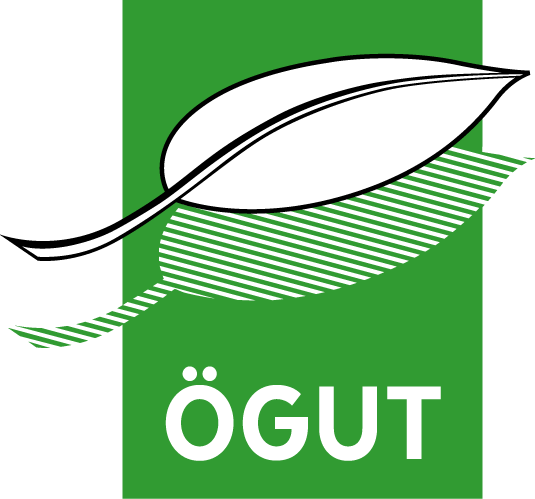
Project
Tech4Green – Disruptive Technologies for Sustainable Production
Client Federal Ministry for Climate Action, Environment, Energy, Mobility, Innovation and Technology (BMK), Austrian Research Promotion Agency (FFG)
Status/Duration completed (2022)
Starting point and goals
The production of material goods is an important factor for the economic development of Austria due to the strong international integration and the role in the innovation system. A high level of innovation in domestic companies is of great importance for the competitiveness of individual companies and the economy as a whole. The objective of the project at hand is to develop a catalogue of disruptive technology examples and to derive RDI recommendations for future sustainable material production.
Background
By generating 60 billion euros in gross value added and a share of around 18% of gross domestic product, manufacturing makes a significant contribution to Austria's economic performance. At the same time material goods production is also responsible for a significant share of Austria's greenhouse gas emissions. The major challenges posed to society by ongoing environmental degradation and the climate crisis make it necessary to rethink the production of tangible goods as well. Reaching the climate targets and increasing the competitiveness and resilience of the Austrian economy requires a broad range of measures along the entire value chain. In addition to the expansion of renewable energies, an improvement of energy and resource efficiency, the implementation of a circular economy requires the use of sustainable innovative technologies, the so-called Tech4Green.
Objective
The purpose of this study was to develop a catalogue of examples of potentially disruptive technologies in the field of sustainable material goods production together with actors from research and industry, and to develop recommendations for action and research priorities for Austrian innovation policy in the field of Tech4Green. In compliance with the strategic goals of the RTI initiative Production of the Future, the results are intended to help increase the innovation performance of national material goods production and support the targeted development of relevant research expertise.
Method
To identify potentially disruptive technologies related to Austrian material goods production, the project conducted an extensive patent and literature search as well as two online surveys. Based on this, a technology taxonomy was developed and subsequently the selected technologies were subjected to a sustainability assessment (using a sustainability matrix). During two interactive workshops, the results were matched and discussed with the involvement of numerous stakeholders from business, science and administration, and recommendations for RTI policy were developed.
Results
The following disruptive "Tech4Green" were identified with particular relevance for Austrian material goods production. It should be emphasized that the disruption triggered by these technologies has not yet been fully completed and is partly at the very beginning.
Table: selected disruptive "Tech4Green" for Austrian material goods production
| Additive manufacturing | Manufacturing 4.0 | Microbial fuel cell |
| Augmented Reality | manufacturing using ultrashort pulse lasers | Microelectromechanical systems |
| Biodegradable sensors | Holograms | Nanotechnologies |
| Carbon Capture & Utilization | Hydrothermal Liquefaction | Organic Light Emitting Diodes (OLED) |
| Chemical Recycling | Smart Sensors (Edge Computing) | Smart Textiles |
| Distributed Ledger Technologies | IT by optoelectronics | Virtual Reality |
| Drones | Artificial intelligence | Hydrogen as a raw material and energy carrier |
| Enzymatic waste treatment | Electric arc furnaces for industrial applications | |
| Exoskeletons | Logistics 4.0 |
The results of the sustainability assessment have shown that the contributions in the sustainability dimensions as well as the broad impact of the technologies are very different. The focus of this project was placed on the ecological sustainability dimension. It should be noted that technologies that have positive effects in the ecological sustainability dimension can have negative effects in the economic or social sustainability dimension. These must also be considered in order to assess the actual contributions of the technologies to improving sustainability in all three dimensions. Overall, some technologies have emerged to have very high potential for sustainable material goods production. In the area of resource and energy efficiency, the most significant technologies are: CCU, smart sensors, logistics 4.0, microelectromechanics and OLED.
If the focus is on the material use of renewable and recyclable materials, then the following technologies are of great importance from the perspective of sustainability assessment: biodegradable sensors, distributed ledger technologies, enzymatic waste treatment, hydrothermal liquefaction and electric arc furnaces. Technologies with the highest climate protection potential show a clear focus on energy-specific technologies, which are considered to have the greatest potential for reducing greenhouse gas emissions: CCU, Logistics 4.0, OLED, hydrogen, smart sensors and virtual reality.
Regarding the different sectors of Austrian material goods production, a very wide dispersion can also be seen in terms of the dominant technologies on the path to sustainability. technologies, such as chemical recycling, are focused on individual industries (e.g. chemicals, textiles). Other technologies, on the contrary, are broadly applicable, but can only be applied in a limited number of companies because of their focus on individual aspects of the value chain. Across almost all industries, however, a few technologies emerge that are important for the majority of Austrian material goods production in terms of increased sustainability.
Technologies for climate-neutral energy supply and decarbonization technologies such as CCU and hydrogen will play a key role in the context of sustainable material goods production.
These technologies have the biggest positive impact on the implementation of a climate-neutral economy and at the same time offer opportunities for reduced dependence on raw material and energy imports, which can strengthen Austria as a business location. In addition, digitization technologies such as OLED and Manufacturing 4.0, as well as Logistics 4.0, are also very broadly applicable and contribute to more energy-efficient and thus more climate-friendly or sustainable material goods production.
Austrian investment on R&D in the field of environment and energy is currently below the EU average, although Austria has a large number of researchers in this field who generate an above-average output of relevant publications and patents. Austrian green companies also create an above-average number of jobs. In the field of eco-innovation, Austria is currently one of the innovation leaders. Austria's RTI system has a good input-output ratio in the field of eco-innovation and is therefore efficient in this area. Innovation policy should become more involved in this area in order to further strengthen innovation in the field of eco-innovation. By specifically promoting these areas of strength, the performance of the Austrian innovation system as a whole can be improved.
However, this requires the right regulatory framework as well as incentives, as green technologies are often not economically self-sustaining in the launch phase. In order to support the diffusion of innovative green technologies into the real economy, innovative young companies in particular need targeted support. In addition to making it easier to start up a company, adequate financing and networking and cooperation between different stakeholders are of decisive importance.
Innovation should always contribute to solving social challenges. For a transformation to succeed, innovation policy should be directed at societal goals and formulate concrete missions. These defined missions for the transition to sustainable and climate-neutral production form the guidelines for the most important research topics as primary fields of action.
Project participants
Project leader
- Austrian Society for Environment and Technology (ÖGUT)
Karin Granzer-Sudra (Project leader), Hannes Warmuth, Marcus Feldbaumer
Project partners
- Scenario Editor
- Institut für Industrielle Ökologie
This project is funded on behalf of the Federal Ministry for Climate Action, Environment, Energy, Mobility, Innovation and Technology (BMK) and with funds from the Production of the Future programme.
